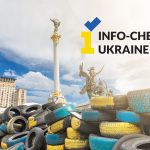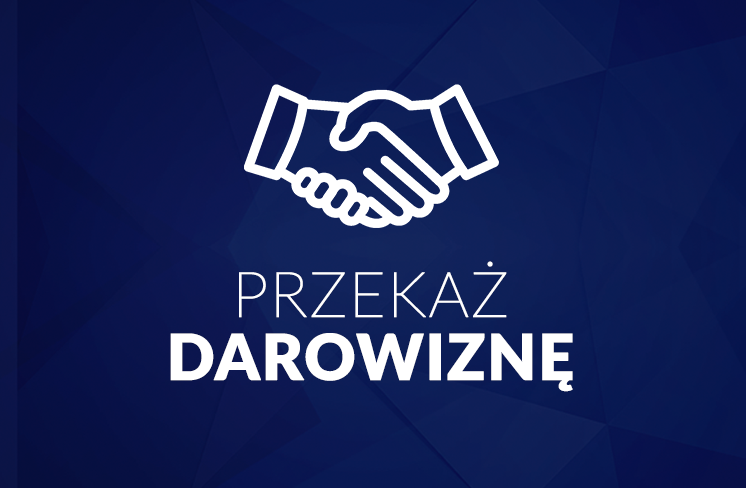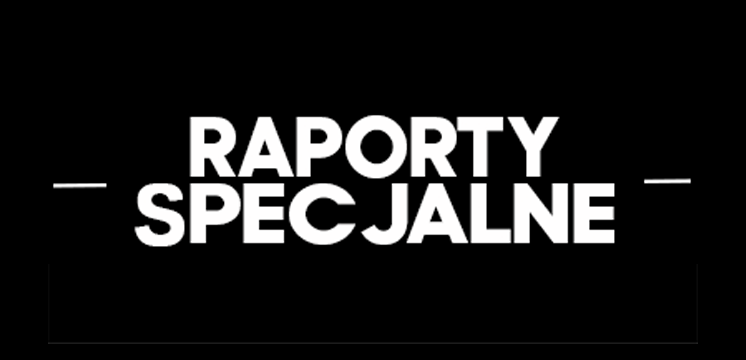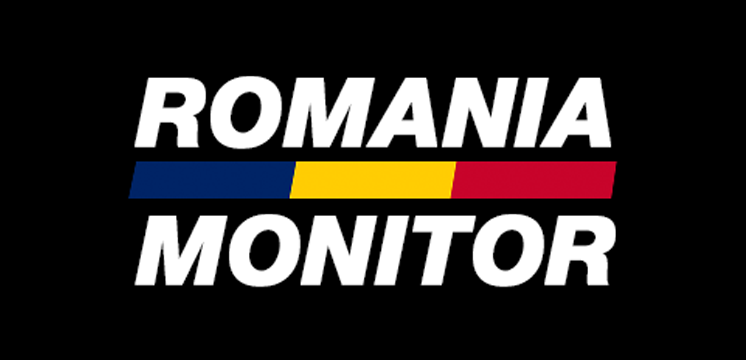AKTUALNOŚCI
Data: 14 listopada 2017
Jak Zachód powinien zatrzymać Putina – Deklaracja Praska
Fundacja Warsaw Institute oraz ponad 100 europejskich
i amerykańskich ekspertów podpisało Deklarację Praską, przedstawiającą siedem kroków, które Zachód musi podjąć w celu zatrzymania rosyjskiej dezinformacji. Prezes Fundacji Warsaw Institute, Krzysztof Kamiński oraz ponad 100 europejskich i amerykańskich ekspertów z zakresu bezpieczeństwa, parlamentarzystów oraz działaczy na rzecz praw człowieka podpisało publiczne wezwanie do powstrzymania rosyjskiej dezinformacji przygotowane przez czeski think-tank European Values.
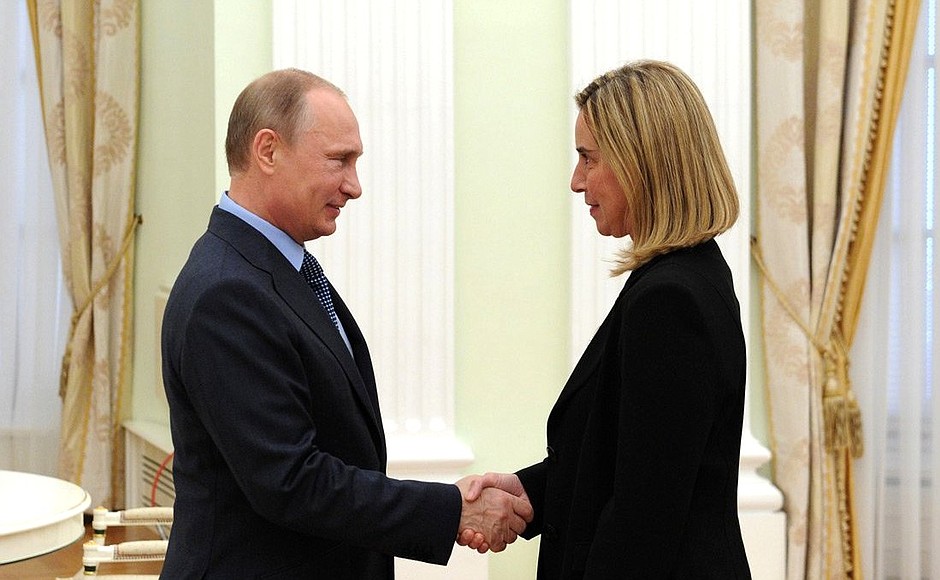
Z uwagi na fakt, że wielu przedstawicieli zachodniego establishmentu politycznego ciągle nie zdaje sobie sprawy z rodzaju niebezpieczeństwa i zagrożenia przed jakim stoimy, dotychczasowa odpowiedź zachodnich demokracji była niewystarczająca i nieefektywna. Sygnatariuszami Deklaracji Praskiej zostali m.in.: wiceprzewodniczący Parlamentu Europejskiego, twórca ustawy Magnickiego Bill Browder, oraz pochodzący z Rosji aktywista na rzecz praw człowieka Garry Kasparov. Sygnatariusze reprezentują również amerykańskie ośrodki analityczne, takie jak Brookings Institution, the American Enterprise Institute, brytyjskie Royal United Services Institute for Defence and Security Studies, Polski Instytut Spraw Międzynarodowych, Estonia’ International Centre for Defense and Security, Center for Study and Research on Political Decision, GLOBSEC Policy Institute, Hungarian Political Capital Instituce, Czech European Values Think-Tank, or Latvian National Defence Academy. Oprócz podpisania Deklaracji Praskiej, Fundacja Warsaw Institute przygotowała specjalne wydanie kwartalnika poświęcone dezinformacji. The Warsaw Institute Review Edycja Specjalna: Dezinformacja zawiera raport na temat zorganizowanej i zaplanowanej dezinformacji w Europie Środkowej i Wschodniej ze szczególnym uwzględnieniem państw Grupy Wyszehradzkiej (V4), Ukrainy oraz państw bałtyckich. Pełna wersja deklaracji wraz z listą sygnatariuszy dostępna w angielskiej wersji językowej na stronie European Values oraz poniżej:
Full contents of the Declaration
The aggressive actions of the Russian Federation, are unprecedented in post-Cold war history: more than 10,000 Ukrainians killed while defending their country against invasion, the first annexation of territory by force in Europe since World War II, constant violations of other countries’ borders and airspace, kidnapping foreign citizens, unprecedented use of disinformation, bribing of politicians, direct financial and logistical support to extremist and paramilitary groups, hostile interference in democratic elections, and constant cyber-attacks. Yet, despite all these hostile actions by Moscow, the response of Western democracies has largely been limited and weak. Many excuses are being made in favor of appeasement, such as the alleged need to cooperate with Russia to combat terrorism, despite all the evidence contradicting the notion that any kind of effective cooperation can realistically be achieved. We also see efforts to put business as usual before the thousands of killed and the safety of our democracies. Vladimir Putin has decided to intimidate and harass democracies and a large part of the Western political establishment has not realized it yet. Vladimir Putin has decided to play divide and rule in the Euro-Atlantic area. Some countries get intimidated by threats, others are given promises such as seemingly sweetheart energy deals if they adopt a more anti-Western, anti-democratic and anti-liberal posture. Regardless, almost all countries are attacked with a mixture of espionage, corruption, organized crime, and unceasing multi-level and multi-channel disinformation campaigns. Whereas the United States is investigating a clearly hostile penetration of its utmost democratic sanctuary — meddling with the election process — no such investigation has been initiated anywhere in Europe. This remains a fact even though there were clear cases of blatant Russian meddling in the Dutch referendum, the British referendum, the Italian referendum, the French elections and, most recently, the German elections and the Catalan referendum. In all these cases, the meddling aimed at weakening the West, weakening the democratic system, creating more chaos and further divisions in our societies. While the EU and NATO are the primary targets, their defensive responses remain rather limited. This clearly shows that a large part of the Western political establishment still does not recognize the kind of threat we are facing. The signatories below, all Western security experts, agree that the following seven steps should be taken:
STEP 1: POLITICAL LEADERS NEED TO ACKNOWLEDGE THE THREAT
Putin’s Russia poses a major threat to Western democracies. Its use of subversive tools to project hostile foreign influence in the internal affairs of democratic countries is unacceptable and should be countered with resolute defensive actions to deter further hostile conduct. Such self-defense counter-pressure is largely not happening. If Moscow does not stop, additional sanctions targeted against family and close-circle members of the Russian leaders should be imposed to put pressure on them to discontinue such actions. The Kremlin currently perceives the lack of punishment as an invitation to continue or step up its aggressive actions.
STEP 2: INVESTIGATE AND EXPOSE HOSTILE ACTIVITIES IN THE NATIONAL CONTEXT
Russian short-term campaigns aim to influence specific national elections and referendums. To provide in-depth accounts of Russia’s subversive efforts in individual countries, national parliaments should form investigative panels to collect and discuss evidence of Moscow’s influence and disinformation operations. Since transparency is the best tool the democratic West has at its disposal, this is the only effective and perfectly legitimate way to present the public with the full scope of this malign threat.
STEP 3: RESEARCH WHAT RUSSIA HAS ACHIEVED
When looking at how these long-term hostile efforts shape public opinion, EU member states should together conduct targeted research (for example with the use of detailed polling) to obtain clear data on which segments of their society believe the most common Kremlin disinformation narratives. Only such comparable and in-depth exercises can expose how far Moscow’s efforts to sway public opinion have already reached.
TEP 4: EMPOWER THE ONLY EXPERT BODY ON THE EU LEVEL
While national institutions are tasked with analyzing and defending their domestic environments, EU institutions too need to defend themselves from this threat. As EU leaders decided to make EEAS counter Russian disinformation campaigns two years ago, the specific team (East STRATCOM Task Force) is still gravely understaffed with only three national experts focusing on this particular and crucial task. EEAS should triple the capacity of this team so it can finally start fulfilling its mandate in earnest. Three experts working alone on this task who, moreover, are not even paid by the EEAS but by their home member states simply cannot perform their tasks assigned by the European Council. Hiring at least seven additional experts paid from THE EEAS budget clearly cannot be an issue, given the size of EEAS staff and budget. At least three years after Russia launched its massive disinformation campaigns, there are many gaps in empirical knowledge as to how successful their narratives and messages have been. EEAS East STRATCOM Task Force has proved itself to be the pillar expert body in Europe with specialized knowledge and is widely respected within intelligence and security establishments; therefore, this unit should be transformed from a temporary assignment into a permanent EEAS structure and provided with at least one million Euros for targeted research. As there already are allied structures to coordinate messaging on ISIS, a similar structure should be put in place to counter pro-Kremlin disinformation.
STEP 5: CONFRONT THE AGGRESSOR POLITICALLY
Despite the seriousness of this threat, few Western political leaders are calling out the aggressor. For example, the EU High Representative for Foreign and Security Policy Federica Mogherini has spent the last two years trying to avoid naming Russia as the main source of hostile disinformation. If Europe wants to defeat this threat, its leaders need to call it out by name. Russian leaders need to hear from European representatives that these hostile subversive efforts against our democracies must stop.
STEP 6: SET UP A WORKING GROUP OF LIKE-MINDED EU & NATO MEMBER STATES
Despite the fact that at least twelve EU states take this threat seriously, these are mainly small-to-medium sized countries that have not been able to work effectively as a like-minded coalition. While this complex threat can be defeated only by collective action, countries concerned with Russian aggression need to set up mechanisms such as a working groups to start taking real joint action, like message coordination.
STEP 7: SPREAD UNDERSTANDING OUTSIDE THE SPECIALIST COMMUNITY
There is comparatively limited understanding of Russian subversive methods in Western European countries; therefore, Central and Eastern European governments and civil society groups need to actively engage in delivering lessons learnt from countering Moscow’s hostile influence operations. So far, the sharing of information and experience has been rather limited. While the Western community of experts on Russian influence and disinformation operations is emerging, there is an urgent need to deliver basic knowledge concerning threat assessment, understanding the modus operandi and reasonable policy options to people outside the specialist community. Extensive training and briefings for non-specialists within Western governments and political establishments are sorely needed. Central and Eastern European governments and civil society groups need to actively engage in delivering lessons learnt from countering Moscow’s hostile influence operations to their allies in Western Europe & USA.
List of signatories(14.11.2017):
- Altau Karl, Joint Baltic American National Committee, Inc. (JBANC)
- Anda Burve – Rozite, Journalist, irir.lv
- Andrei Kovalev, PhD History, Author of Russia’s Dead End: An Insider’s Testimony from Gorbachev to Putin
- Andrikienė Laima Liucija, Member of the European Parliament, Lithuania
- Aro Jessikka, Investigative journalist, Finland
- Bahovski Erkki, The ICDS, the editor of Diplomaatia
- Baublys Artūras, Art2B, Public Establishment, Director
- Berzins Janis, Director at the Center for Security and Strategic Research, National Defence Academy, Latvia
- Berzins Valdis, Latvijas Avize daily, foreign news editor
- Blank Senior Stephen, Fellow, American Foreign Policy Council, USA
- Boháček Petr, Director, European Security Journal, Czech Republic
- Boyadzhiev Georgi, Scale Focus AD, Bulgaria
- Browder Bill, Chief Executive Officer & Co-founder of the investment fund Hermitage Capital, UK
- Buziashvili Eto, Programs Director, Georgian Strategic Analysis Center, Georgia
- Coynash Halya, Kharkiv Human Rights Group, Ukraine
- Čelutka Simas, Director of European Security Programme, Vilnius Institute for Policy Analysis, Lithuania
- Čižik Tomáš, Director, Centre for European and North Atlantic Affairs, Slovakia
- D’Urso Dario , Director, EuropeNext
- Dal Re Maurizio , Cyber Security Expert, Italy
- Dalia Bankauskaite, Media Program Director, Vilnius Institute of Policy Analysis
- Dalziel Stephen, Senior Fellow, The Institute for Statecraft
- Dębski Sławomir, Director, The Polish Institute of International Affairs, Poland
- Engelen Kurt, Euro Atlantic Association of Belgium, Vice president
- Evgenidze Nino, Economic Policy Research Center – Executive Director
- Eyal Jonathan, Associate Director, Royal United Services Institute for Defence and Security Studies, UK
- Fedchenko Yevhen, Co-founder, StopFake.org, Ukraine
- Fleischer Pawel, President & CEO of the Institute for Forecasting and International Studies
- Foley John, US Army, LTC, (Retired)
- Fota Iulian, former national security adviser to the President of Romania, signing in personal capacity, Romania
- Freudenstein Roland, Policy Director, Wilfried Martens Centre for European Studies, Belgium
- Furmonavicius Darius, Lithuanian Research Centre, UK
- Gaprindashvili Paata, Director, Georgia´s Reforms Associates, Georgia
- Garmash Anna, President, Ukraine Action, Ukraine
- Gedmin Jeffrey, Senior Fellow, Georgetown University, former President of Radio Free Europe/Radio Liberty, USA
- Gerber Simon, President of swiss-ukraine.org, Switzerland
- Gonchar Mykhailo, President, Centre for Global Studies ‘Strategy XXI’, Ukraine
- Gressel Gustav C., PhD, Senior Policy Fellow, Wider Europe Programme, European Council on Foreign Relations
- Grigoryan Stepan, Chairman of the Board, Analytical Centre on Globalization and Regional Cooperation, Armenia
- Gvineria Shota, Deputy Secretary, National Security Council, Georgia
- Gyori Lorant, analyst, Political Capital Institute, Hungary
- Haigh Maria, Associate professor, University of Wisconsin
- Christoph Müller, BigBand of the German Armed Forces, StaffSergeant
- Jakóbik Wojciech, Energy analyst, Poland
- Kamiński Krzysztof, President, Warsaw Institute, Poland
- Kasciunas, Laurynas, Member of Parliament, Lithuania
- Kasparov Garry , human rights activist, Russia
- Kelam Tunne, European Parliament, Member from Estonia
- Keršanskas Vytautas, Deputy director, Eastern Europe Studies Centre
- Kestutis Eidukonis J., World Lithuanian Community/Lithuanian Parliament Commission member, Lithuania
- Khylko Maksym, Co-founder, Chairman of the Board, East European Security Research Initiative Foundation, Ukraine
- Kintsurashvili Tamar, Media Development Foundation, Georgia
- Kirchick James, Visiting Fellow, Brookings Institution, USA
- Kobosko Michal, Director, Poland Office, Atlantic Council, Poland
- Kolář Petr, former Deputy Foreign Minister and four-time Ambassador, Czech Republic
- Kolga Marcus, Senior Fellow, MacDonald-Laurier Institute Centre for Advancing Canada’s Interests Abroad
- Kreko Peter, Director, Political Capital Institute, Hungary
- Kross Eerik-Niiles, Former Intelligence Chief, current Member of Parliament, Estonia
- Kudors Andis, Executive Director, Centre for East European Policy Studies, Latvia
- Kwasiborski Matthew, European Institutes Director
- Lavreniuk Andrii, UKRINFORM’s Staff Correspondent in Belgium, Ukraine
- Loskutovs, Aleksejs, Member of Parliament, Latvia
- Magdin Radu, international analyst, former prime ministerial advisor in Romania, Romania
- Malinionis Vaidotas, National Defense Foundation, Lithuania
- Maliukevicius Nerijus, researcher, IIRPS, Vilnius University, Lithuania
- Mantila Markku, former Director of Government Communications at Prime Ministers Office,
- Marin Danu, Foreign Policy Association of Moldova
- McKew Molly , information operations expert, USA
- Mesik Juraj, civic activist, Slovakia
- Mezřický Václav, emeriti docent Faculty of Law Charles University Prague
- Milic Jelena, Director, Center for Euro-Atlantic Studies, Serbia
- Miliute Rita, Journalist, Lithuania
- Milo Daniel, Head of STRATCOM Initiative, GLOBSEC Policy Institute, Slovakia
- Moser Michael, University of Vienna (Austria), Professor
- Naď Jaroslav, Director, Slovak Security Studies Institute, Slovakia
- Nicolini Mario, Founder & Honorary President, Euro-Atlantic Center, Slovakia
- Niland Paul, Founder, Statement Email, Ukraine
- Novak Andrej Ferdinand, European Cosmopolitan Consulting, Senior Consultant
- Novotný Vít, Wilfried Martens Centre for European Studies, Senior Research Officer
- O’Connell Evan, Senior Associate, Aspect Consulting, France
- Panyi Szabolcs, journalist, Index.hu and VSquare.org, Hungary
- Pedersen Kim Bjarne, Writer and human rights activist, Denmark
- Pelczynska-Nalecz KATARZYNA, Stefan Batory Foundation
- Poche Miroslav, MEP, Czech Republic
- Porchkhidze Irakli, Vice-president, Georgian Institute for Strategic Studies, Georgia
- Potekhin Dmytro, Nonviolent.Solutions, Ukraine
- Potiekhin Principal Oleksandr, researcher, Institute of World History, National Academy of Sciences, Ukraine
- Przybylski Wojciech, Visegrad Insight, Res Publica
- Rebecca Harms, Member of European Parliament
- Reichardt Adam, Editor-in-Chief, New Eastern Europe, Poland
- Rey Marcin, Blogger, Rosyjska V Kolumna w Polsce, Poland
- Rimantas Kraujalis, Chairman of the Council, Vilnius University, Lithuania
- Roháč Dalibor, Research Fellow, American Enterprise Institute, USA
- Sakalauskas Giedrius, Direktor, Res Publika, Lithuania
- Samadashvili Salome, MP, Parliament of Georgia, Deputy Chair, Committee on Foreign Relations
- Sanchez Elisa, Autonoma
- Saryusz-Wolski Jacek, MEP, Poland
- Seely Robert , MBE MP, Member of Parliament, Isle of Wight
- Schindler John, former NSA analyst, USA
- Smolar Eugeniusz, – Senior Fellow, Centre for International Relations, Poland
- Spolitis Veiko, Parliament dof the Republic of Latvia / MP
- Stollmeyer Alice, Founder & Director, Defending Democracy, Belgium
- Suprun Marko, Patriot Defence NGO, Acting Director
- Szymańska – Klich Anna, Foundation Institute for Strategic Studies, Chairman of the Board
- Szyszko Jan, Polityka Insight, European Affairs Analyst
- Štětina Jaromír , MEP, Vice-Chair of Subcommittee on Security and Defence
- Tabliashvili Irakli, Politics.ge – web page. VOICE FROM GEORGIA. DIRECTOR
- Tatham Steve, Director Influence Options Ltd, Associate Fellow Strategy & Security Institute, University of Exeter, UK
- Telička Pavel , MEP, Vice-President of the European Parliament, Czech Republic
- Tenzer Nicolas, Chairman of Center for Study and Research on Political Decision, Guest Professor at Sciences Po Paris, France
- Teperik Dmitri, Chief Executive, International Centre for Defense and Security, Estonia
- Tretyak Leon, SBS Radio, Sydney. Producer.
- Troebst Stefan, Leipzig University, Germany
- Tudor Radu, Political and Military Analyst, Antena 3 TV, Romania
- Umland Andreas, Institute for Euro-Atlantic Cooperation, Kyiv
- VaidereInese, Member of the European Parliament, Latvia
- Vasiloi Rosian, signing in personal capacity, security studies expert, former Deputy Head of the Border Police Department, Republic of Moldova
- Vassilev Ilian, Former Ambassador of Bulgara to Russia – 2000-2006
- Vilu Raivo, Professor, Tallinn University of Technology, Estonia
- Viola von Cramon-Taubadel, Former MP, German Parliament
- Vogel Nathalie, independent analyst, Germany
- Wetzel Iryna, Board Member of swiss-ukraine.org, Switzerland
- Wićaz Stanij, European Values Think Tank, Intern
- Wierzejski Antoni, Analyst, Centre for International Relations, Poland
- Wyciszkiewicz Ernest, director, Centre for Polish-Russian Dialogue and Understanding, Poland
- Zala Boris, MEP, Slovakia
- Zelienkova Kristyna, former Czech MP, author of the report Political consequences of the Russian aggression in Ukraine
All texts published by the Warsaw Institute Foundation may be disseminated on the condition that their origin is credited. Images may not be used without permission.


